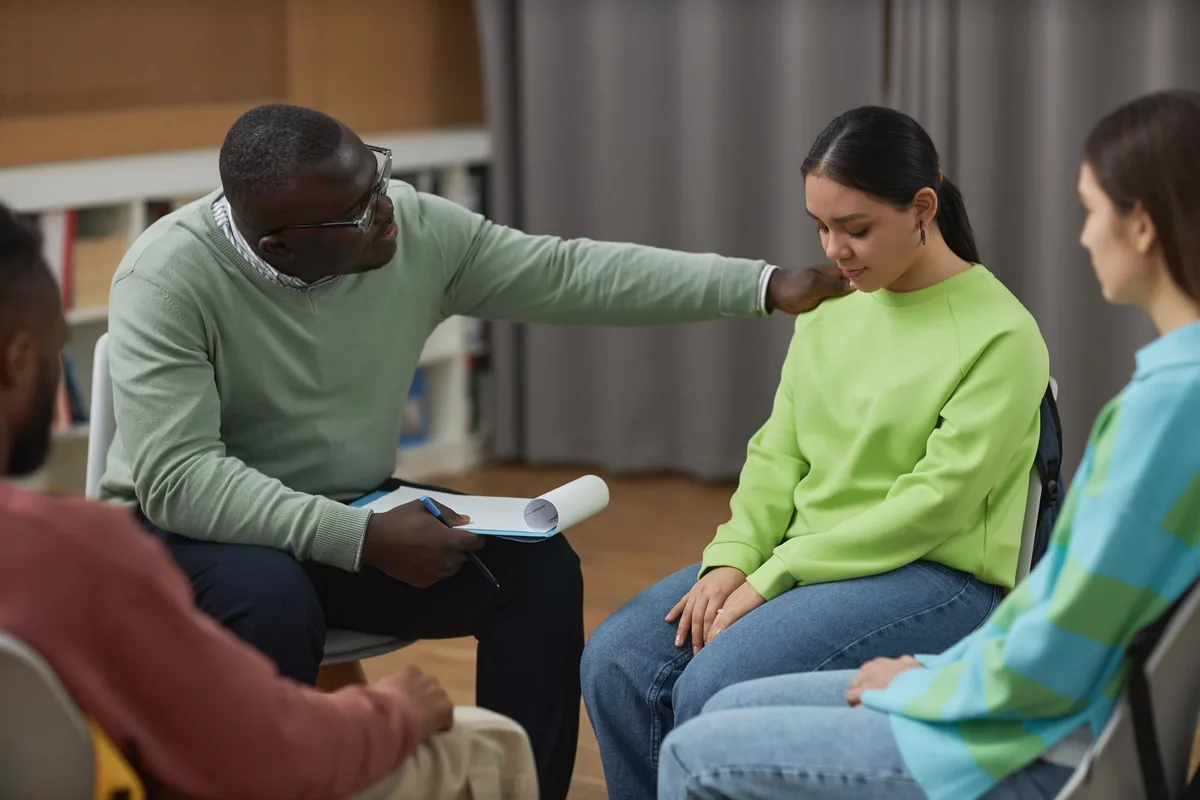24/7 Helpline:
(866) 899-221924/7 Helpline:
(866) 899-2219
Learn more about PTSD Rehab centers in Pine Prairie
PTSD Rehab in Other Cities

Other Insurance Options

Regence

Covered California

Excellus

Evernorth

EmblemHealth

Ambetter

Holman Group

CareFirst

Multiplan

Access to Recovery (ATR) Voucher

Health Partners

Humana

Providence

MVP Healthcare

Absolute Total Care

BlueShield

Health Net

AllWell

WellPoint

Magellan Health

Compass Behavioral Center
Compass Behavioral Center is a private rehab located in Mamou, Louisiana. Compass Behavioral Center ...
















Ville Platte Behavioral Health Clinic
Ville Platte Behavioral Health Clinic by Acadiana Area Human Services District provides comprehensiv...











































